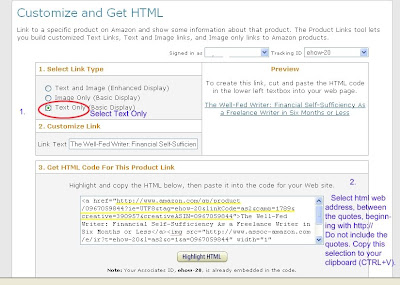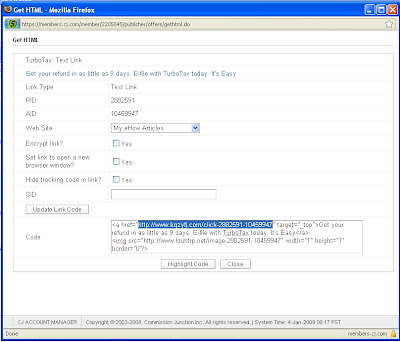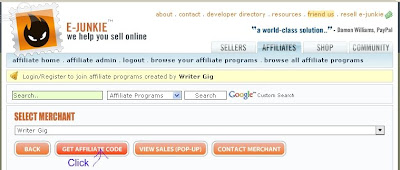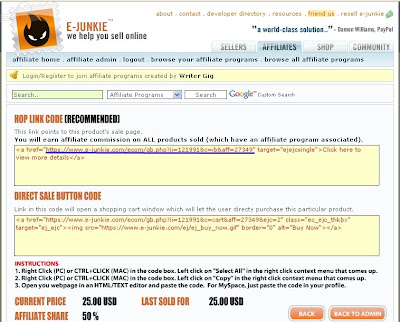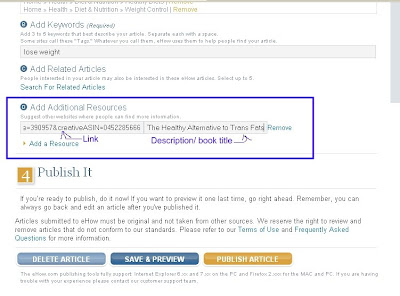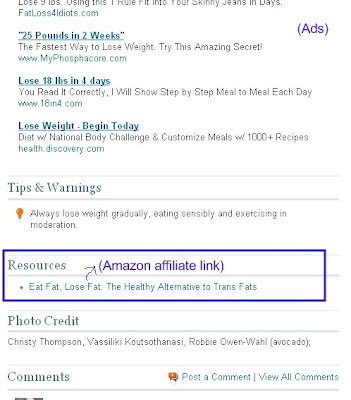"Rich people focus on opportunities,
Poor people focus on obstacles."
-T. Harv Eker, Secrets of the Millionaire Mind
 For many writers, the official end of eHow's Writers Compensation program (WCP) comes as a big disappointment, if not a total shock. Since the program closed to new articles a year ago, in April 2010, many predicted the eventual cessation of payments.
For many writers, the official end of eHow's Writers Compensation program (WCP) comes as a big disappointment, if not a total shock. Since the program closed to new articles a year ago, in April 2010, many predicted the eventual cessation of payments.
Why End the WCP?
My Plans
First, I am going to look at this not as an obstacle, but as an opportunity. The quote I shared at the beginning of this post is from a book my husband's sales team was required to read and discuss over the past few months. There are many excellent "wealth files" in it, and I thought this one was particularly fitting for those who write online to build residual income.
 For many writers, the official end of eHow's Writers Compensation program (WCP) comes as a big disappointment, if not a total shock. Since the program closed to new articles a year ago, in April 2010, many predicted the eventual cessation of payments.
For many writers, the official end of eHow's Writers Compensation program (WCP) comes as a big disappointment, if not a total shock. Since the program closed to new articles a year ago, in April 2010, many predicted the eventual cessation of payments. Why End the WCP?
Demand Media, which went public in January, has been working to streamline their eHow.com property, minimize duplicate content, and since last spring has put all new articles through a competent editorial process. There are still many articles on the site, including content that pre-dates Demand's acquisition of eHow and some inferior WCP articles, that detract from rather than boost eHow's reputation. By stopping WCP payments and allowing users to remove their content, eHow is both cleaning up its site and perhaps making a business decision as to the profitability of various content.
Buyout Offers
As of May 5, 2011, the WCP is over and done with and no further earnings will accrue. However, Demand Media has made personalized offers to buy writer's content in order to keep it on eHow.com.
Buyout Offers
As of May 5, 2011, the WCP is over and done with and no further earnings will accrue. However, Demand Media has made personalized offers to buy writer's content in order to keep it on eHow.com.
Writers still own their intellectual property -- the articles written and published on eHow -- but can no longer receive residual payments via the eHow platform. Thus, many will choose to accept Demand Media's buyout offer for their articles and leave them on the site, transferring ownership to Demand.
Some will decline the offer and instead delete their articles from eHow and move them to other content sites, personal blogs and self-run niche sites. Others have decided to leave their articles on eHow, hoping to profit at least for a little while longer from the secondary streams of income generated by their content: links to their related niche sites and the affiliate links allowed by the original WCP.
My mom accepted her offer of about $220 for three articles, sister #1 took $330+ for her dozen articles, and sister #2 declined $34 for 10 articles. I think they all made good decisions. In the end, much of their articles' value was that they were published on eHow.com.
Some will decline the offer and instead delete their articles from eHow and move them to other content sites, personal blogs and self-run niche sites. Others have decided to leave their articles on eHow, hoping to profit at least for a little while longer from the secondary streams of income generated by their content: links to their related niche sites and the affiliate links allowed by the original WCP.
My mom accepted her offer of about $220 for three articles, sister #1 took $330+ for her dozen articles, and sister #2 declined $34 for 10 articles. I think they all made good decisions. In the end, much of their articles' value was that they were published on eHow.com.
Regardless of whether they keep their articles on the site or not, writers who counted on the money they earned from eHow each month will need to find ways to replace that income as quickly as possible. Several writer/work at home mom (WAHM) friends have asked me what I'm going to do.
My Plans
First, I am going to look at this not as an obstacle, but as an opportunity. The quote I shared at the beginning of this post is from a book my husband's sales team was required to read and discuss over the past few months. There are many excellent "wealth files" in it, and I thought this one was particularly fitting for those who write online to build residual income.
A positive outlook is important in order to move forward and to create success in other endeavors. I think of all that I learned from my eHow.com articles, including valuable insight about profitable niches, and know that I can take this experience, knowledge gained through the surprising success of my "eHow experiment," and use it to build an even higher monthly residual income.
Practically speaking, I'll be concentrating my efforts on the following areas:
- My pets-theme niche site
- My home/family-theme niche site
- My three recipe-theme niche sites
- Affiliate marketing
To build my residual income on these properties, I'll be
- Writing quality, original, helpful articles
- Locating and affiliate-linking to excellent products and resources
- Backlinking and using social media to increase traffic and SERP ranking of my content
(2/2/2016: For those looking back and wondering... yes, I took eHow's buyout offer. It was fair. It was significant. It was a win-win. And looking back, five years later, I know for certain what a great decision that was.)
That's my plan in a nutshell. What's yours?


















